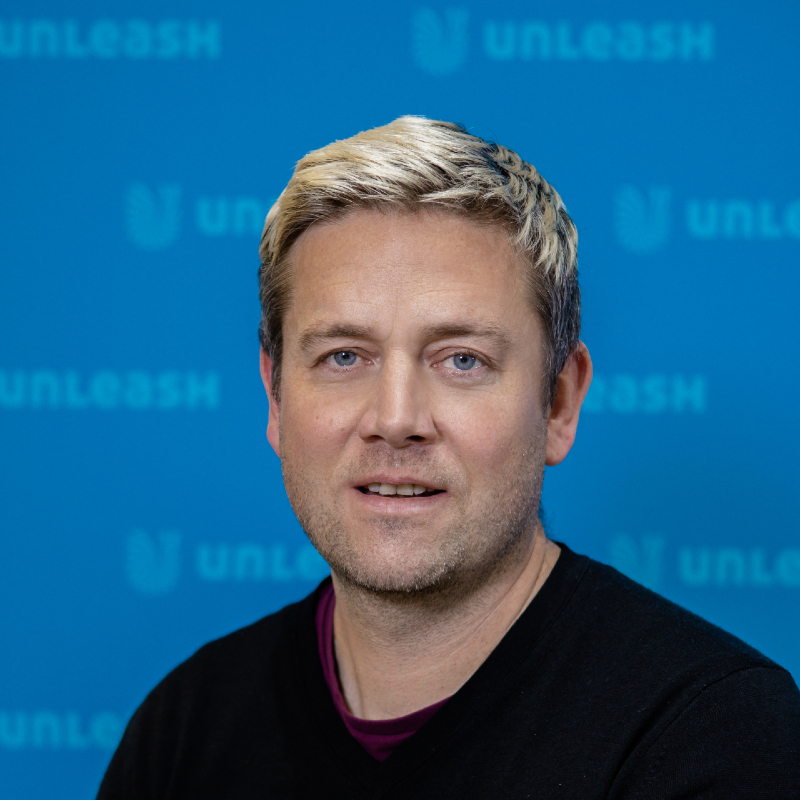Q&A: Five minutes with WarnerMedia’s Asif Sadiq
In this exclusive interview, Asif Sadiq reflects on his new position at WarnerMedia as their Senior Vice President of Equity and Inclusion.
Why You Should Care
The goal of an ally is to create a platform and a voice for an underrepresented group, not to replace their voice.
Take Asif's advice and be an ally to anyone marginalised in your organization.
Asif Sadiq has more than 15 years’ global experience in his industry, having worked in Europe, America and EMEA. After a stint at EY Financial Services and also heading up D,E&I for the City of London Police, Asif became global head of diversity, inclusion and social impact for Adidas before joining WarnerMedia last year.
Diversity, equity, and inclusion continue to be essential topics of conversation in the workplace, so do not miss this exciting Q&A with a true champion of unity.
How does your background in policing strategies prepare for your roles in a media organization like WarnerMedia?
With policing, one of the biggest things that it prepared me for, both in my role at WarnerMedia and in previous roles, is being able to understand the impact of initiatives.
As you are aware, whatever you do has an impact on wider society, from both perceptions to engagement. That really [taught me] the importance of understanding the implications of diversity, equity and inclusion, both internally and externally.
In an ideal world, organizations wouldn’t need high-profile diversity roles, as every employee would implicitly understand the importance of D,E&I. Do you believe this will ever be possible?
I’d like it to be, even though that would probably put me out of the job!
But I think even now with people like myself in senior positions, we can only provide tools to individuals to champion the change. I cannot change a whole organization by myself.
I really do need different business leaders, different individuals in different teams to champion [D,E&I]. And my role is very much giving them the tools to be able to do that in the future.
In an ideal world, they know where to find the tools themselves, they would know how to champion it and create an inclusive culture. Once we make a culture that really embeds inclusion, then it will be something that can hopefully be achieved.
Do I think it will happen in the near future? Probably not. Yes, in the ideal world, it would be great if we could, but I think it’s a bit of a journey to get there.
But it does require people like me to intentionally champion equity and inclusion from a different perspective and empower others to lead rather than leading ourselves.
A word we often hear in the context of D,E&I is ‘allyship’; what is allyship, and why is it important?
Allyship is a great thing, but I do think when we explore allyship, we need to understand a few critical points.
Number one, allyship goes beyond one month. So, it’s not just about being an ally during Pride or during Black History Month. That’s a great starting point; an opportunity to learn, to show your visibility, to show that you are supporting your community. But where the role of an ally really comes to light is when that very group you’re championing is not in the room.
When you use your privilege and your power to be an advocate for them, that is the critical part.
I mean, it’s great for someone to be an ally when the group is there, but what you do when they’re not in the room and again, that position of power you have is critical.
The second point which is really important as an ally is to remember that the goal of an ally is to create a platform and a voice for an underrepresented group, not to replace their voice.
I say that because a lot of allies with the best intention end up becoming the voice for the very community they want to support – you’re taking a voice away from them.
So those two points I think are critical. Number one, support them when they’re not in the room, stand up for them and be their voice. But when they are in the room, pass the mic to them.
How would you respond to a leadership crisis, and what advice can you offer other C-Suite leaders?
I think one of the biggest things I’ve learned in the last couple of years when it comes to leadership and the changing nature of leadership is that we can no longer continue to be leaders of the past.
And what I mean by that is a lot of leadership programs, courses, and strategies talk about leaders being people who have all the answers, who never show vulnerability, are powerful, all those sorts of traits.
The truth is that doesn’t resonate with people. People are now looking for leaders that show vulnerabilities, leaders that don’t have all the answers but are ready to listen and ask the right questions. Leaders who are human.
I think human-centric leadership is the biggest thing!
This exclusive interview with Asif Sadiq was organized and conducted by Chris Tompkins on behalf of the Diversity & Inclusion Speakers Agency.
+++
The world’s HR conference and expo is back! Don’t miss out on UNLEASH World in Paris this October.

Editorial content manager
Jon has 20 years' experience in digital journalism and more than a decade in L&D and HR publishing.